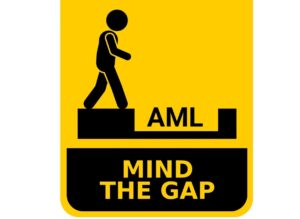In this second post of our digital property market series, we explore the role of data in shaping a truly digital property market. We examine why today’s data landscape is far from open and accessible, how overcoming the fragmented data landscape is in the interest of the consumer, and how we can make open data a reality.
The property market is awash with data. A quick Google search and any prospective buyer can find property prices, listing history, EPC information, and more without too much difficulty. However, despite this plethora of property data, transactions still typically take 150 days to complete and 30% fail to reach a conclusion at all.
When you look at the pain points of buying and selling property, 99% of issues faced – the time it takes, the lack of control, the lack of visibility, sharing the same information multiple times to multiple parties – they all come down to the fact that data is fragmented. Everyone already has the information, yet it cannot be easily accessed or shared.
We know every party in a property transaction, from buyer to seller to estate agent to conveyancer, shares the same goal: to complete the transaction as smoothly as possible. But achieving this hinges on one thing—making the right data available to the right people, in the right format, at the right time.
Data in today’s property market is not Open or FAIR
The government Data Strategy has described “what good looks like” in this space. It says all data should be FAIR; Findable, Accessible, Interoperable, and Reusable. But what does this actually mean?
Findable – How easy is it to locate the property data you are looking for. Can you quickly search an online database for a keyword, or are you painstakingly reading a PDF or printed document?
Accessible – How easy is it to get your hands on the property information you need. Is it readily available in a portal a few clicks away, do you have to ask someone else to grant access to it, or worse is the data you need in a printed document hidden away in a paper file somewhere?
Interoperable – Can the data be easily integrated with other data sources? For instance, could your property information be easily combined with another system’s information during a transaction for someone else to use. Or can that data only be exchanged via email or over the telephone?
Reusable – Reusability is at the core of data sharing, ensuring that your data is as useful as possible for others. Once your property data has served its purpose for your transaction, how easily can someone else use that same data for their own.
Just a cursory glance at the property market tells you its use of data is a long way from being FAIR:
- None of the data is currently held in properly digital formats. Word documents and PDFs are of no use because the data isn’t findable or accessible. The data required is trapped in static documents that are impossible to share without emailing or physically printing and sending in the post.
- When the data is in a digital format, it’s stuck in systems that aren’t connected. It might be on a conveyancer’s database somewhere, but the estate agent’s system can’t get it easily. There goes our ‘interoperable’.
- None of the data is structured in any standard way. Even if you can get the data you need, it isn’t easily reusable, and will often need to be rekeyed, reuploaded, and transformed to conform to the bespoke data model of the receiving system.
Closed systems don’t promote open data and limit it becoming FAIR
Given the property market’s predicament, some have sought to overcome the problem by creating their own one-stop-shop solutions where everything a consumer may require in order to complete a property transaction is centralised. Wide ranging product portfolios and data sources all in one place. Sounds good in theory, doesn’t it?
In fact, by reaching to solve for the inaccessibility of data they have compounded the inherent problem of fragmentation in the property market. These closed environments may allow for the seamless flow of data within their systems, however, as soon as another party involved in the transaction isn’t using the same solution it falls apart. Data and information are once again only transferable between different systems through PDFs, sent via email, and manually re-entered into the required systems.
These environments are only open to their users, they (and their data) are categorically closed off from the rest of the property market. These solutions only perpetuate the fragmented nature of the industry.
We believe that by promoting open data, standardising it, and making it easily accessible to all parties, we will create a true digital property market, and transform everyone’s experience for the better. As a result, the property market can become more transparent and innovative.
Making FAIR and open property data a reality
So, what’s the solution? To make findable, accessible, interoperable, and reusable data a reality we need to build the right foundations for the market.
Open and accessible
We must do away with the closed-off silos that currently govern our data landscape. Data must be resident in a modern open system that enables parties with permissions (from the data owner) to read and write to the database via an open API. Access to the API must not be governed by the commercial interests of the software platform, but rather by the business requirements of the data owner and wider property market.
A strong data infrastructure
The industry needs an intelligent backbone that can connect all the parties and systems in the market to orchestrate the exchange of data. This requires a unified infrastructure, a network that can enable connection and interaction between the multiple different systems and parties in a property transaction. Only this can ensure that businesses involved have a shared, single source of truth.
Share data not documents
We need to fundamentally change how we operate and move away from using PDFs that are filled out, scanned, and sent back and forth during a transaction. Instead, when the information is stored as pieces of data, that data is only entered once and is able to be reused many times, across all of the forms required to complete a property transaction.
Data standards
Data must be standardised to ensure all parties are able to use it, share it and access it confidently and efficiently. Through the development of the Property Data Trust Framework, the Home Buying & Selling Group is making great strides to improve data accessibility and introduce common standards for data sharing across the property market.
Data provenance
Data must be reliable, and you must be confident in where it came from. The data needs to have ‘provenance,’ an immutable record of its source. When the data is moved across a secure form of blockchain, like with Coadjute – you can see where the data came from and independently verify it.
A property market built on open data
We believe home buyers and sellers deserve to have a property market that operates seamlessly end-to-end. To achieve that, they need data that is open and FAIR – findable, accessible, interoperable, reusable – wherever it is stored, whatever system they use.
Over the past five years, we have developed and launched a network, built on enterprise-grade blockchain, that is the market-wide infrastructure the property market desperately needs. Our network facilitates the real-time sharing of property, identity, and transaction data.
This isn’t just another closed shop that doesn’t connect to other solutions, it doesn’t add to the fragmentation and scattered pockets of data that we have today. Instead it connects, which is why we are working with so many partners across the market to achieve. A fair property market with FAIR data. Interoperability, orchestration, and a seamless digital experience for consumers.


